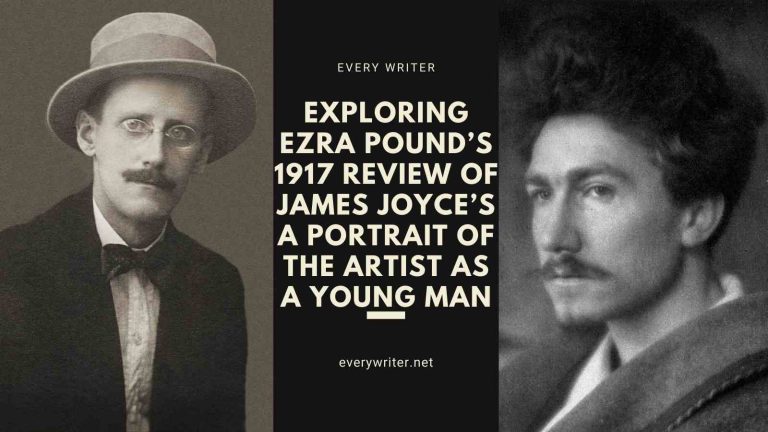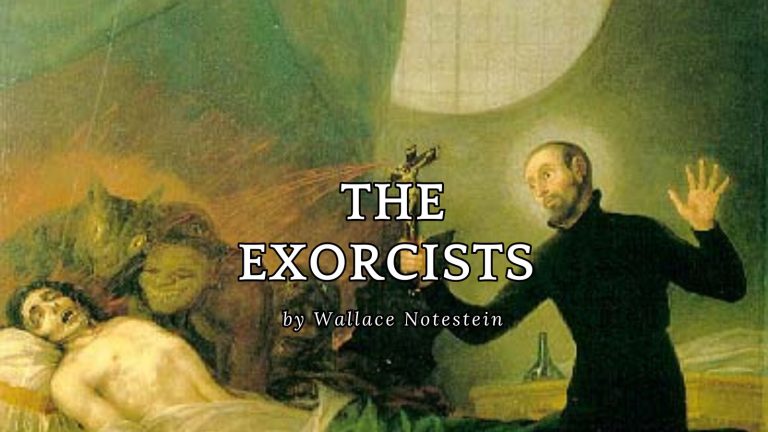 Michael Angelo is revealed by his sonnets. He wears the triple crown of painter, poet, and sculptor, and his genius was worshipped with a kind of awe even while he lived, yet we know the man best through these little pieces of himself which he broke off and gave to his friends. The fragments vibrated with the life of the man, and were recognized as wonderful things. Even in his lifetime they were treasured and collected in manuscript, and at a later day they were seized upon by the world at large.
Michael Angelo is revealed by his sonnets. He wears the triple crown of painter, poet, and sculptor, and his genius was worshipped with a kind of awe even while he lived, yet we know the man best through these little pieces of himself which he broke off and gave to his friends. The fragments vibrated with the life of the man, and were recognized as wonderful things. Even in his lifetime they were treasured and collected in manuscript, and at a later day they were seized upon by the world at large.
The first published edition of the sonnets was prepared for the press many years after the death of the author by his grandnephew, who edited them to suit the taste of the seventeenth century. The extent and atrocity of his emendations can be realized by a comparison of texts. But the sonnets survived the improvements, and even made headway under them; and when, in 1863, Guasti gave the original readings to the public, the world was prepared for them. The bibliography of editions and translations which Guasti gives is enough to show the popularity of the sonnets, their universal character, their international currency.
There are upward of one hundred sonnets in every stage of perfection, and they have given rise not only to a literature of translations, but to a literature of comment. Some years ago Mrs. Ednah Cheney published a selection of the sonnets, giving the Italian text, together with English translations by various hands. This little volume has earned the gratitude of many to whom it made known the sonnets. The Italians themselves have gone on printing the corrupt text in contempt of Guasti’s labors. But it has not been left to the Italians to protect the treasures of their land. The barbarians have been the devoutest worshippers at all times. The last tribute has come from Mr. John Addington Symonds, who has done the sonnets into the English of the pre-Raphaelites, and done them, on the whole, amazingly well. His translations of the more graceful sonnets are facile, apt, and charming, and rise at times into beauty. He has, however, insisted on polishing the rugged ones. Moreover, being deficient in reverence, Mr. Symonds fails to convey reverence. Nevertheless, to have boldly planned and carried out the task of translating them all was an undertaking of so much courage, and has been done with so much success, that every rival must give in his admiration.
The poems are exceedingly various, some being rough and some elegant, some obvious and some obscure, some humorous, some religious. Yet they have this in common, that each seems to be the bearer of some deep harmony, whose vibrations we feel and whose truth we recognize. From the very beginning they seem to have had a provocative and stimulating effect upon others; ever since they were written, cultivated people have been writing essays about them. One of them has been the subject of repeated academical disquisition. They absorb and reflect the spirit of the times; they appeal to and express the individual; they have done this through three centuries and throughout who shall say how many different educational conditions. Place them in what light you will, they gleam with new meanings. This is their quality. It is hard to say whence the vitality comes. They have often a brilliancy that springs from the juxtaposition of two thoughts,—a brilliancy like that produced by unblended colors roughly but well laid on. They have, as it were, an organic force which nothing can render. The best of them have the reflective power which gives back light from the mind of the reader. The profounder ones appear to change and glow under contemplation; they re-echo syllables from forgotten voices; they suggest unfathomable depths of meaning. These sonnets are protean in character; they represent different things to different people,—religion to one, love to another, philosophy to a third.
It is easy to guess what must be the fate of such poems in translation. The translator inevitably puts more of himself than of Michael Angelo into his version. Even the first Italian editor could not let them alone. He felt he must dose them with elegance. This itching to amend the sonnets results largely from the obscurity of the text. A translator is required to be, above all things, comprehensible, and, therefore, he must interpret, he must paraphrase. He is not at liberty to retain the equivocal suggestiveness of the original. The language of a translation must be chastened, or, at least, grammatical, and Michael Angelo’s verse is very often neither the one nor the other.
The selections which follow are not given as representative of the different styles in the original. They have been chosen from among those sonnets which seemed most capable of being rendered into English.
The essential nature of the sonnet is replete with difficulty, and special embarrassments are encountered in the Italian sonnet. The Italian sonnet is, both in its form and spirit, a thing so foreign to the English idea of what poetry should be, that no cultivation can ever domesticate it into the tongue. The seeds of flowers from the Alps may be planted in our gardens, but a new kind of flower will come up; and this is what has happened over and over again to the skilled gardeners of English literature in their struggles with the Italian sonnet. In Italy, for six hundred years, the sonnet has been the authorized form for a disconnected remark of any kind. Its chief aim is not so much to express a feeling as an idea—a witticism—a conceit—a shrewd saying—a clever analogy—a graceful simile—a beautiful thought. Moreover, it is not primarily intended for the public; it has a social rather than a literary function.
The English with their lyrical genius have impressed the form, as they have impressed every other form, into lyrical service, and with some success, it must be admitted. But the Italian sonnet is not lyrical. It is conversational and intellectual, and many things which English instinct declares poetry ought not to be. We feel throughout the poetry of the Latin races a certain domination of the intelligence which is foreign to our own poetry. But in the sonnet form at least we may sympathize with this domination. Let us read the Italian sonnets, then, as if they were prose; let us seek first the thought and hold to that, and leave the eloquence to take care of itself. It is the thought, after all, which Michael Angelo himself cared about. He is willing to sacrifice elegance, to truncate words, to wreck rhyme, prosody, and grammar, if he can only hurl through the verse these thoughts which were his convictions.
The platonic ideas about life and love and art, which lie at the bottom of most of these sonnets, are familiar to us all. They have been the reigning commonplace ideas of educated people for the last two thousand years. But in these sonnets they are touched with new power; they become exalted into mystical importance. We feel almost as if it were Plato himself that is talking, and the interest is not lessened when we remember that it is Michael Angelo. It is necessary to touch on this element in the sonnets, for it exists in them; and because while some will feel chiefly the fiery soul of the man, others will be most struck by his great speculative intellect.
It is certain that the sonnets date from various times in Michael Angelo’s life; and, except in a few cases, it must be left to the instinct of the reader to place them. Those which were called forth by the poet’s friendship for Vittoria Colonna were undoubtedly written towards the close of his life. While he seems to have known Vittoria Colonna and to have been greatly attached to her for many years, it is certain that in his old age he fell in love with her. The library of romance that has been written about this attachment has added nothing to Condivi’s simple words:—
“He greatly loved the Marchesana of Pescara, with whose divine spirit he fell in love, and was in return passionately beloved of her; and he still keeps many of her letters, which are full of most honest and tenderest love, such as used to issue from a heart like hers; and he himself had written her many and many a sonnet full of wit and tenderness. She often left Viterbo and other places, where she had gone for pleasure, and to pass the summer, and came to Rome for no other reason than to see Michael Angelo. And in return he bore her so much love that I remember hearing him say that he regretted nothing except that when he went to see her on her death-bed he had not kissed her brow and her cheek as he had kissed her hand. He was many times overwhelmed at the thought of her death, and used to be as one out of his mind.”
It seems, from reading the sonnets, that some of those which are addressed to women must belong to a period anterior to his friendship with Vittoria. This appears from the internal evidence of style and feeling, as well as by references in the later sonnets.
One other fact must be mentioned,—both Vittoria and Michael Angelo belonged to, or at least sympathized with, the Piagnoni, and were in a sense disciples of Savonarola. Now, it is this religious element which makes Michael Angelo seem to step out of his country and out of his century and across time and space into our own. This religious feeling is of a kind perfectly familiar to us; indeed, of a kind inborn and native to us. Whether we be reading the English prayer-book or listening to the old German Passion Music, there is a certain note of the spirit which, when we hear it, we perfectly recognize as a part of ourselves. What we recognize is, in fact, the Protestantism which swept over Europe during the century of Michael Angelo’s existence; which conquered Teutonic Europe, and was conquered, but not extinguished, in Latin Europe; and a part of which survives in ourselves. If one wishes to feel the power of Savonarola, one may do so in these sonnets. We had connected Michael Angelo with the Renaissance, but we are here face to face with the Reformation. We cannot help being a little surprised at this. We cannot help being surprised at finding how well we know this man.
Few of us are familiar enough with the language of the plastic arts to have seen without prompting this same modern element in Michael Angelo’s painting and sculpture. We might, perhaps, have recognized it in the Pieta in St. Peter’s. We may safely say, however, that it exists in all his works. It is in the Medicean statues; it is in the Julian marbles; it is in the Sistine ceiling. What is there in these figures that they leave us so awestruck, that they seem so like the sound of trumpets blowing from a spiritual world? The intelligence that could call them forth, the craft that could draw them, have long since perished. But the meaning survives the craft. The lost arts retain their power over us. We understand but vaguely, yet we are thrilled. We cannot decipher the signs, yet we subscribe to their import. The world from which Michael Angelo’s figures speak is our own world, after all. That is the reason they are so potent, so intimate, so inimitably significant. We may be sure that the affinity which we feel with Michael Angelo, and do not feel with any other artist of that age, springs from experiences and beliefs in him which are similar to our own.
His work speaks to the moral sense more directly and more powerfully than that of any one,—so directly and so powerfully, indeed, that we whose physical senses are dull, and whose moral sense is acute, are moved by Michael Angelo, although the rest of the cinque cento culture remain a closed book to us.
It is difficult, this conjuring with the unrecoverable past, so rashly done by us all. Yet we must use what light we have. Remembering, then, that painting is not the reigning mode of expression in recent times, and that in dealing with it we are dealing with a vehicle of expression with which we are not spontaneously familiar, we may yet draw conclusions which are not fantastic, if we base them upon the identity of one man’s nature some part of which we are sure we understand. We may throw a bridge from the ground in the sonnets, upon which we are sure we stand firmly, to the ground in the frescos, which, by reason of our own ignorance, is less certain ground to us, and we may walk from one side to the other amid the elemental forces of this same man’s mind.
XXXVIII
Give me again, ye fountains and ye streams,
That flood of life, not yours, that swells your front
Beyond the natural fulness of your wont.
I gave, and I take back as it beseems.
And thou dense choking atmosphere on high
Disperse thy fog of sighs—for it is mine,
And make the glory of the sun to shine
Again on my dim eyes.—O, Earth and Sky
Give me again the footsteps I have trod.
Let the paths grow where I walked them bare,
The echoes where I waked them with my prayer
Be deaf—and let those eyes—those eyes, O God,
Give me the light I lent them.—That some soul
May take my love. Thou hadst no need of it.
This rough and exceedingly obscure sonnet, in which strong feeling has condensed and distorted the language, seems to have been written by a man who has been in love and has been repulsed. The shock has restored him to a momentary realization of the whole experience. He looks at the landscape, and lo! the beauty has dropped out of it. The stream has lost its power, and the meadow its meaning. Summer has stopped. His next thought is: “But it is I who had lent the landscape this beauty. That landscape was myself, my dower, my glory, my birthright,” and so he breaks out with “Give me back the light I threw upon you,” and so on till the bitter word flung to the woman in the last line. The same clearness of thought and obscurity of expression and the same passion is to be found in the famous sonnet—”Non ha l’ ottimo artista alcun concetto,”—where he blames himself for not being able to obtain her good-will—as a bad sculptor who cannot hew out the beauty from the rock, although he feels it to be there; and in that heart-breaking one where he says that people may only draw from life what they give to it, and says no good can come to a man who, looking on such great beauty, feels such pain.
It is not profitable, nor is it necessary for the comprehension of the poems, to decide to whom or at what period each one was written. There is dispute about some of them as to whether they were addressed to men or women. There is question as to others whether they are prayers addressed to Christ or love poems addressed to Vittoria. In this latter case, perhaps, Michael Angelo did not himself know which they were.
Vittoria used to instruct him in religion, and he seems to have felt for her a love so deep, so reverent, so passionate, and so touching that the words are alive in which he mentions her.
“I wished,” he writes beneath a sonnet which he sent her, evidently in return for some of her own religious poems, “I wished, before taking the things that you had many times deigned to give me, in order that I might receive them the less unworthily, to make something for you from my own hand. But then, remembering and knowing that the grace of God may not be bought, and that to accept it reluctantly is the greatest sin, I confess my fault, and willingly receive the said things, and when they shall arrive, not because they are in my house, but I myself as being in a house of theirs, shall deem myself in Paradise.”
We must not forget that at this time Michael Angelo was an old man, that he carried about with him a freshness and vigor of feeling that most people lose with their youth. A reservoir of emotion broke loose within him at a time when it caused his hale old frame suffering to undergo it, and reillumined his undimmed intellect to cope with it. A mystery play was enacted in him,—each sonnet is a scene. There is the whole of a man in each of many of these sonnets. They do not seem so much like poems as like microcosms. They are elementally complete. The soul of man could be evolved again from them if the formula were lost.
XL
I know not if it be the longed for light
Of its creator which the soul perceives,
Or if in people’s memory there lives
A touch of early grace that keeps them bright
Or else ambition,—or some dream whose might
Brings to the eyes the hope the heart conceives
And leaves a burning feeling when it leaves—
That tears are welling in me as I write.
The things I feel, the things I follow and the things
I seek—are not in me,—I hardly know the place
To find them. It is others make them mine.
It happens when I see thee—and it brings
Sweet pain—a yes,—a no,—sorrow and grace
Surely it must have been those eyes of thine.
There are others which give a most touching picture of extreme piety in extreme old age. And there are still others which are both love poems and religious poems at the same time.
LV
Thou knowest that I know that thou dost know
How, to enjoy thee, I did come more near.
Thou knowest, I know thou knowest—I am here.
Would we had given our greetings long ago.
If true the hope thou hast to me revealed,
If true the plighting of a sacred troth,
Let the wall fall that stands between us both,
For griefs are doubled when they are concealed.
If, loved one,—if I only loved in thee
What thou thyself dost love,—’tis to this end
The spirit with his belovéd is allied.
The things thy face inspires and teaches me
Mortality doth little comprehend.
Before we understand we must have died.
LI
Give me the time when loose the reins I flung
Upon the neck of galloping desire.
Give me the angel face that now among
The angels,—tempers Heaven with its fire.
Give the quick step that now is grown so old,
The ready tears—the blaze at thy behest,
If thou dost seek indeed, O Love! to hold
Again thy reign of terror in my breast.
If it be true that thou dost only live
Upon the sweet and bitter pains of man
Surely a weak old man small food can give
Whose years strike deeper than thine arrows can.
Upon life’s farthest limit I have stood—
What folly to make fire of burnt wood.
The occasion of the following was probably some more than wonted favor shown to him by Vittoria.
XXVI.
Great joy no less than grief doth murder men.
The thief, even at the gallows, may be killed
If, while through every vein with fear he’s chilled,
Sudden reprieve do set him free again.
Thus hath this bounty from you in my pain
Through all my griefs and sufferings fiercely thrilled,
Coming from a breast with sovereign mercy filled,
And more than weeping, cleft my heart in twain.
Good news, like bad, may bring the taker death.
The heart is rent as with the sharpest knife,
Be it pressure or expansion cause the rift.
Let thy great beauty which God cherisheth
Limit my joy if it desire my life—
The unworthy dies beneath so great a gift.
XXVIII
The heart is not the life of love like mine.
The love I love thee with has none of it.
For hearts to sin and mortal thought incline
And for love’s habitation are unfit.
God, when our souls were parted from Him, made
Of me an eye—of thee, splendor and light.
Even in the parts of thee which are to fade
Thou hast the glory; I have only sight.
Fire from its heat you may not analyze,
Nor worship from eternal beauty take,
Which deifies the lover as he bows.
Thou hast that Paradise all within thine eyes
Where first I loved thee. ‘T is for that love’s sake
My soul’s on fire with thine, beneath thy brows.
The German musicians of the seventeenth century used to write voluntaries for the organ, using the shorthand of the older notation; they jotted down the formulas of the successive harmonies expressed in terms of the chords merely. The transitions and the musical explanation were left to the individual performer. And Michael Angelo has left behind him, as it were, the poetical equivalents of such shorthand musical formulas. The harmonies are wonderful. The successions show a great grasp of comprehension, but you cannot play them without filling them out.
“Is that music, after all,” one may ask, “which leaves so much to the performer, and is that poetry, after all, which leaves so much to the reader?” It seems you must be a Kapellmeister or a student, or dilettante of some sort, before you can transpose and illustrate these hieroglyphics. There is some truth in this criticism, and the modesty of purpose in the poems is the only answer to it. They claim no comment. Comment claims them. Call them not poetry if you will. They are a window which looks in upon the most extraordinary nature of modern times,—a nature whose susceptibility to impressions of form through the eye allies it to classical times; a nature which on the emotional side belongs to our own day.
Is it a wonder that this man was venerated with an almost superstitious regard in Italy, and in the sixteenth century? His creations were touched with a superhuman beauty which his contemporaries felt, yet charged with a profoundly human meaning which they could not fathom. No one epoch has held the key to him. There lives not a man and there never has lived a man who could say, “I fully understand Michael Angelo’s works.” It will be said that the same is true of all the very greatest artists, and so it is in a measure. But as to the others, that truth comes as an afterthought and an admission. As to Michael Angelo, it is primary and overwhelming impression. “We are not sure that we comprehend him,” say the centuries as they pass, “but of this we are sure: Simil ne maggior uom non nacque mai.”
- 8 Authors Who Created Literary Masterpieces Keeping Their Day Jobs - March 31, 2025
- Plotter or Pantser? A Writer’s Personality Quiz - March 30, 2025
- 100 Must-Try Mystery Writing Prompts (Solve the Perfect Crime!) - March 22, 2025






